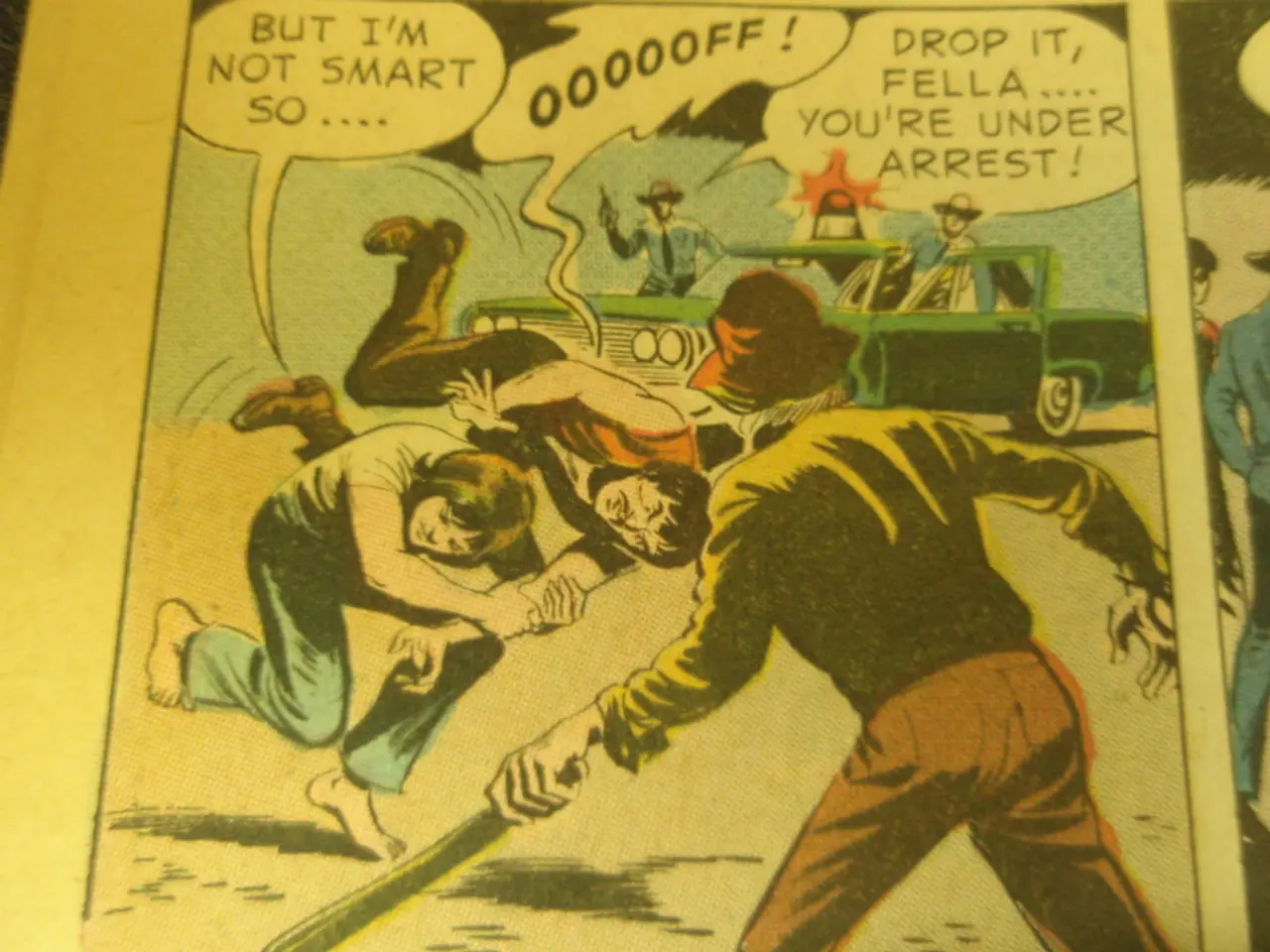RoboCop: A Relevant Cautionary Tale
'80s Action Film RoboCop Delivers Enduringly Relevant Political Commentary Today
In the heart of the 1980s, the action movie "RoboCop" directed by Paul Verhoeven made a significant impact, serving as a cautionary tale that remains relevant today. Set in a dystopian Detroit, the film critiques the dangers of unchecked corporate power and the blurring of lines between private interests and public services.
Critique of Corporate Power
The film's narrative unfolds in a world where crime has spiraled out of control, leading the city to rely on a private corporation, Omni Consumer Products (OCP), to develop a robotic law enforcement officer. This setup is a critique of the dangers of unchecked corporate power and the potential for private entities to take over public services[1][4].
Satire of Media and Consumerism
"RoboCop" employs satire to comment on consumer culture and media manipulation. The film includes mock advertisements and a futuristic news format that reflects how corporations can influence public opinion and shape societal values[1][5].
Deregulation and Privatization
The film mirrors the era's focus on corporate deregulation and privatization under Reagan's administration. The story portrays a society where the government's inability to maintain order leads to the privatization of public services, highlighting the consequences of such policies[1].
Contemporary Relevance
The film's portrayal of corporations exerting significant control over public services and governance resonates with current concerns about corporate influence on politics and society. Today, debates about corporate power encompass issues like lobbying, campaign finance, and the outsourcing of public services to private entities[1][4].
The theme of media manipulation remains relevant today, especially with the rise of social media and the proliferation of misinformation. Like in "RoboCop," contemporary media can shape public narratives and influence political discourse[3][4].
The dystopian setting of "RoboCop" serves as a cautionary tale about the dangers of unchecked capitalism and technological advancement without ethical oversight. This theme continues to resonate with contemporary discussions about the ethical implications of advanced technologies and corporate practices[1][3].
A New Sequel on the Horizon?
Despite not loving all of Verhoeven's films, Peter Weller, who plays RoboCop in the original, has expressed interest in a potential new sequel to "RoboCop." The villain in the film, the rogue executive Dick Jones, played by Ronny Cox, is part of the company Omni Consumer Products, which is portrayed as doing terrible things, with the filmmakers' intent being to criticize corporations and their potential for corruption[1].
References:
[1] The Verge
[2] The Guardian
[3] The Atlantic
[4] The New Yorker
[5] The Washington Post
- The daily blend of general news often features discussions about corporations exerting substantial influence on politics and society, echoing the theme in the movie "RoboCop."
- In the realm of entertainment, movies and TV shows like "RoboCop" use satire to highlight the dangers of unchecked media manipulation and consumer culture, a subject relevant in today's science and technology-driven world.
- The advancements in science and technology, much like those depicted in "RoboCop," frequently spark debates about their ethical implications in our daily blend of news and discussions, emphasizing the need for ethical oversight in these areas.







